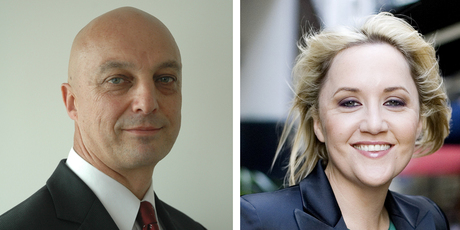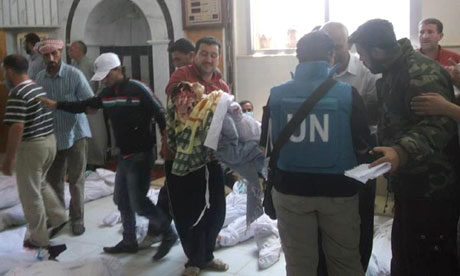by Ali Al-Bassam
Impunity Watch Reporter, Middle East
CAIRO, Egypt – After casting their votes in the first election since the Arab Spring, Egyptians will now have to decide whom to select in a run-off between Mohamed Mursi, a member of the Muslim Brotherhood, and Hosni Mubarak’s former Prime Minister, Ahmed Shafiq.
Mursi had won the first round with 5.8 million votes, while Shafiq placed second with 5.5 million. Hamdin Sabahi, candidate of the leftist al-Kamarah party, came in third with 4.82 million votes. Since no candidate managed to win more than fifty percent of the vote, a runoff between Mursi and Sabahi was necessary.
Only forty-six percent of Egyptians who were eligible to vote turned out for the first round of the elections. Such low figures may have been due to a lack of enthusiasm for the candidates, or due to the brevity of the campaigns, which were conducted in less than two months. Those who participated in last year’s revolution must now decide to support either a candidate who wants to create Islamist rule, or a candidate who supports a military-backed authoritarian system.
The results represent a worst-case scenario for many of those who participated in last year’s revolution, and in reaction to the results of the elections, hundreds of protestors had taken to the streets of Egypt’s cities.
Many supporters of Sabahi are disappointed with the results. One supporter, Dalia Gelaa, calls the results “a disaster,” and believes that “there will be a next revolution soon.”
After the election, Sabahi appealed the results, stating that many members of the army and police, who were banned from casting votes, had access to the polls and voted. However, the Elections Commission rejected his claim on grounds that even though there were some “shortcomings” in the electoral process, they were insufficient to substantially affect the result. Former Brotherhood member Abdul Moneim Abul, who finished fourth, also made an unsuccessful appeal. Abul requested that the announcement of the results be delayed until the conclusion of an investigation of all reported violations.
Mursi appeals to Egyptians who want a deeply religious country that features a democratic framework. Those who support Shafiq believe that his victory in the run-off will result in a return to security and normalcy in Egypt. However, many believe that if Shafiq is elected, tensions in the country could escalate to the same point it was at during the revolution. Shafiq’s foes have even vowed to take the streets if he wins the run-off.
“In the next two weeks there will be an upsurge in violence,” predicted a Western diplomat.
For further information, please see:
BBC – Egypt poll: Islamist Mursi and Ex-PM Shafiq in Run-Off – 28 May 2012
New York Times – Egypt Confirms Candidates for Presidential Runoff – 28 May 2012
Reuters – Islamist, Ex-Military Man Contest Egypt Presidency – 28 May 2012
Al Jazeera – Egypt Vote Count Points to Decisive Runoff – 26 May 2012



